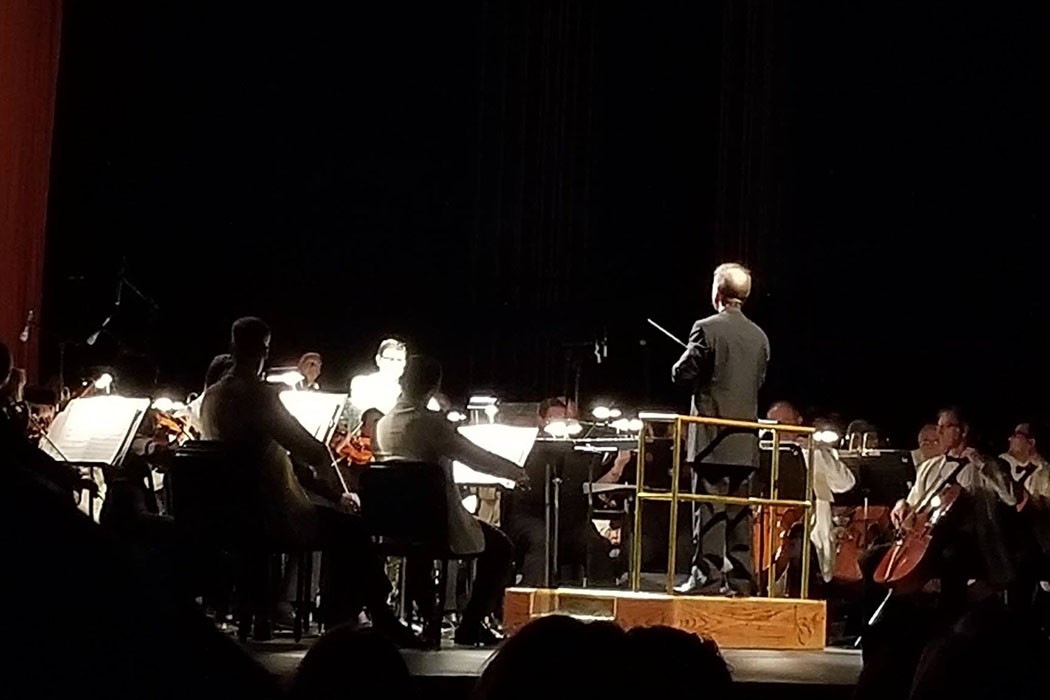It is said that everyone has at least one awakening moment in their life when music and culture collide at a particular time and place. For those in their pre-teen years, such a music/culture moment is a part of a life exploration, one that speaks loudly, then fades with time, but leaves an indelible memory of that emotional connection. For those innately destined to music, such a moment may be the beginnings of a life in the arts.
As it turned out, just such an awakening moment was indirectly responsible for a sell-out crowd gathering for “Music of John Williams”, the Knoxville Symphony Orchestra’s concert on Saturday evening. For Maestro James Fellenbaum, the resident conductor of the KSO, the moment of intersection of the film music of composer/conductor John Williams and the cultural phenomena of those films was a catalyst that solidified his desire for a career in music. Importantly, one was also left to wonder, just how many others in that audience would admit to a similar moment of obsession between Williams and the cultural phenomena of the Star Wars, Jurassic Park, and Harry Potter franchises.
Of course, it is impossible to overstate Williams’ impact on American music. He has been responsible for soundtracks for over 90 feature films since 1960—winning five Academy Awards—that built on a previous 10 years of composing for television series and TV movies. Often credited as “Johnny Williams” in those early days, many are surprised to learn he contributed music and themes to dozens of 60s TV staples including Lost in Space, Wagon Train, Bachelor Father, Kraft Suspense Theatre, and Checkmate. And, during a 13 year period that included work on E.T The Extra Terrestrial, Far and Away, JFK, Hook, Home Alone, Indiana Jones and the Last Crusade, Empire of the Sun, and The Witches of Eastwick, he was also principal conductor of the Boston Pops Orchestra.
While no concert of normal length can hope to represent Williams’ vast body of work, Fellenbaum supplied an entertaining narration throughout, leaving hints to his encyclopedic knowledge on the subject. While weaving in background on the films and their cultural significance to American life, Fellenbaum did not hesitate to use humor and sight gags to engage the very receptive audience. Practically mandatory was the appearance of some costumed characters for visual impact, in this case, storm troopers, Yoda, and others from Star Wars—not to mention a stage-hungry dinosaur. And, 10-year old Henry Jay, by virtue of an auction won by his parents, guest conducted the Imperial March from Star Wars: The Empire Strikes Back.
The orchestra’s companion for the evening, the Knoxville Choral Society had a couple of numbers, including the poignant “Somewhere in My Memory” from Home Alone and Music from The Wizarding World of Harry Potter. The evening’s concertmaster, violinist Gordon Tsai, turned in a beautiful rendering of the main theme from Schindler’s List. The oboe, a cinematic staple to suggest wistfulness, nostalgia, and poignance, was given enchanting moments throughout the evening from KSO principal Claire Chenette, notably in the Theme from Angela’s Ashes, which also featured pianist Emi Kagawa. Principal trumpet Chase Hawkins offered stunningly beautiful passages from Born on the Fourth of July.
Saving the truly iconic for the Finale, Fellenbaum, the orchestra, and the Choral Society concluded with the cultural phenomena that is Star Wars, including masterful themes from across the seven films: “Across the Stars,” “Princess Leia’s Theme,” and “Duel of the Fates.” The very fact that we consider Williams’ contribution to film music to be “iconic” is proof of its force as a companion in American culture.








